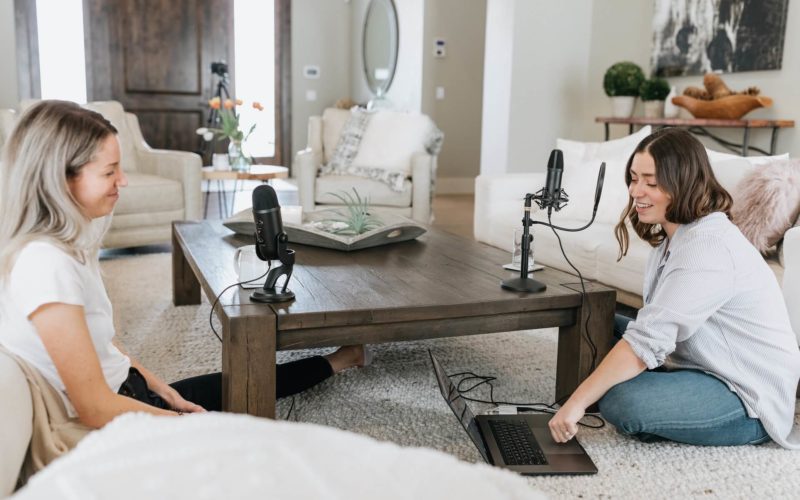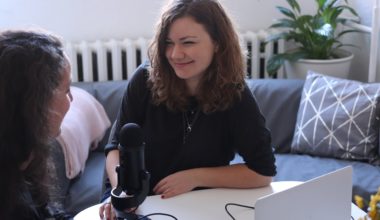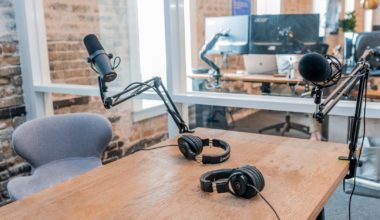When we review podcasts on this blog, we award points on three criteria:
1. The production quality
2. The subject matter
3. The host
Great podcasts consistently get the highest scores on all three. That’s what makes them great in the first place. Quite often, new podcasters focus too much on production quality. They spend lots of time, energy and money on researching about and purchasing the ‘right’ podcasting gear.
Yes, the production quality is extremely important. It is the first thing a listener will gauge. If the audio quality is poor, or there’s a lot of background noise or you can’t understand what the host is saying, your podcast is toast. I have written a whole blog post on simple steps you could take to improve your podcast’s production quality.
However, just having top-notch production will not make your podcast popular. It is only a part of the recipe. The other part of the recipe is the content and the host. You must have these three ingredients in correct proportion to make the pie. Or cookie. (It depends on what you want to bake with this analogy.)
So what does it mean to get the content right?
Firstly, the podcast must have some benefit to the listener. It should be able to teach, inspire, or entertain. Some of the most popular podcasts manage to combine these benefits. The Dollop, for example, teaches about history and entertains with a great sense of humour.
Secondly, the podcast must be well researched. It should be based on facts and should be free of errors. If you start a podcast about the origin of words, for example, you must know what you are talking about. If you are going to talk about something with authority, you better have a deep understanding of the subject matter in the first place. Buy a book. Watch a documentary. Take a course.
And lastly, the podcast should be based on an interesting subject. The podcast must have something that makes it unique and different from the other podcasts. This is hard, but it is also the part that could make your podcast shine. If you are doing something that others are not, you will stand out. And listeners will be more likely to take notice.
But do not go so niche as to alienate prospective listeners who are not too heavily invested in that particular subculture. It must have some sense of broad appeal.
Do these points sound contradictory? Not really. I am saying you must find that sweet spot between too broad and too narrow.
Surveys are great for this. Before starting a podcast, create a survey on Google forms or Typeform and send it to all your friends, family and colleagues. Anyone, you know really. This would be a good sample size. If most of them say they would not be interested in “The Evolution of Mattresses”, your podcast idea doesn’t have legs.
As for the host, the most important thing is that you must be able to present the podcast well.
The best podcasts are those in which the host is confident, relaxed and speaks with clarity (the last one is a frequent issue for me as I tend to mumble). Getting this right is the most difficult aspect of creating a podcast. It takes months, even years to get to a point where one feels comfortable in front of a mic.
Standup comics do well in podcasting because they are used to speaking into a mic, ad-libbing, and engaging with an audience.
A great podcast host must keep the audience listening. If you have a podcast about the origin of words, make an effort to keep it exciting for the listener.
This is not something you can fake. Do not pretend to be who you are not. Let your personality come through.
You can learn these skills, but it takes time. Some of these are obvious. If you are interviewing guests on your show, don’t interrupt them, for example. Listen to what they are saying. Let the spotlight be on them. Don’t be like this guy!
The key to interviewing is listening. If you don’t listen, you’re not a good interviewer. I hate interviewers who come with a long list of prepared questions. Because they’re going to depend on going from the fourth question to the fifth question without listening to the answer of the fourth question. Because they’re concentrating on what they’re going to ask for the fifth. And that’s not the way it works for me. So I concentrate solely on the answer, and I trust my instincts to come up with questions. Even if the answerer fully answered the question, I’m ready in my head to go somewhere with it. There’s no dead air.
Thankfully, these skills can be acquired. There are courses on public speaking that you can take, for example. There are countless books on how to be a better conversationalist or a better interviewer. Some of these skills are transferable too. Like, you can sign up for improv comedy classes. Learning improvisation has proven to improve and promote: communication, social interaction, confidence, active listening, physical awareness and helping with anxiety. Exactly the skills a good podcaster should possess.
So think about the entire cookie when you think about improving your podcast. Not just the flour. Not just the sugar. And not just the eggs.








